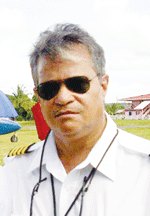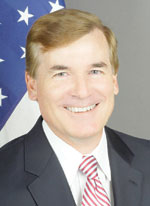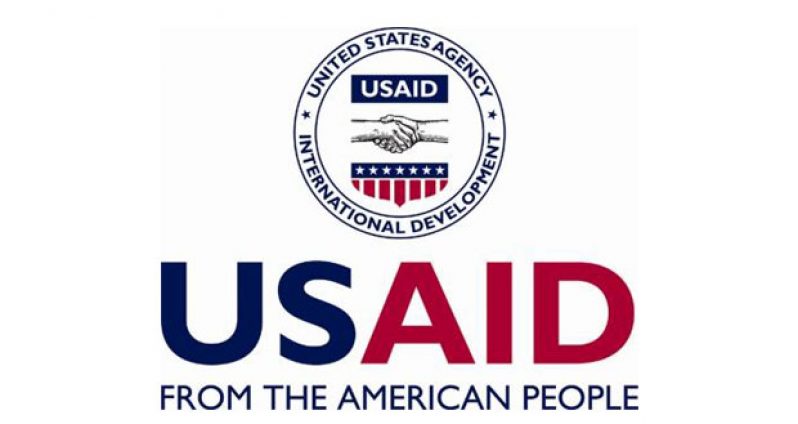THE controversial $300M USAID-Funded Leadership and Democracy (LEAD) project, rejected by the Government of Guyana, was the subject of discussions between the Private Sector Commission (PSC) and representatives of the United States Embassy on Thursday.

PSC Chairman, Mr. Ronald Webster, told the Guyana Chronicle the meeting was an informative one.
He said: “Now that we have met with representatives from the embassy, we hope to meet with the Government side to inform ourselves, sometime next week. The meeting has not been scheduled yet.”

Webster said, after that meeting, the PSC will articulate its position on the matter.
However, from a personal standpoint, he made it clear that the issue is not one that should become a “political football” at any cost.
“It is a democracy issue,” he contended.
Meanwhile, former PSC Chairman Mr. Gerry Gouveia, in an invited comment, observed that the U.S. and Guyana have enjoyed good relations and the disagreement  over the LEAD programme should not be allowed to affect them.
over the LEAD programme should not be allowed to affect them.
MORE CLEARLY
“The Ambassador is a friend of Guyana. The real issue here is not that Cabinet disapproved of the project and Government needs to explain more clearly why they reject the project, but that Government is allowing certain factions to drive a wedge between Guyana and the U.S. The Government should not fall for that,” he warned.
Gouveia emphasised the need for the issue at hand to be settled.
“Guyana is a well-respected and recognised country in the West. There is no reason why we need to feel threatened,” he suggested.
Gouveia acknowledged that there is a history of distrust between Guyana and the U.S., but pointed out that the context in which that was bred is completely different today.

“The fact of the matter is that it (the distrust) happened during the time of the Cold War when there was a move against communism. There is no reason for that now. The current war is against drugs and terrorism and Guyana is not part of any of these,” he asserted.

Gouveia was loud in loud praise for the benefits of the LEAD undertaking, particularly as it relates to raising the level of debate in the National Assembly.
“This is what the Guyanese people want from our MPs (Members of Parliament),” he asserted.
Gouveia expressed the hope for reconciliation on the matter.
President of the Georgetown Chamber of Commerce (GCCI), Mr. Clinton Urling, joining the debate, told the Guyana Chronicle his organisaton had not addressed the controversy.
But he echoed a similar call as Gouevia, for talks between the Government and the U.S. Embassy.
“From what I have seen, I do not think there is anything sinister about the project. I think it will help civil society groups, including political parties, to improve their participatory role in the democratic process.
“Hopefully, talks will ascertain whether or not the project has sinister motives and clarify exactly the benefits for Guyana,” Urling said.
He maintained that the Government had a right to object to the proposal if it is a matter of subversion of democracy.
The GCCI President added that, in the past, the U.S. Embassy has undertaken to invest in projects implemented through civil society groups.
NOT INSURMOUNTABLE
With the calls for talks by private sector stakeholders, Head of the Presidential Secretariat and Cabinet Secretary Dr. Roger Luncheon, remarked that the problem is not “insurmountable.”
He reiterated, though, that there will be no negotiations under duress.
Speaking at his weekly press conference, he declared: “We ain’t negotiating under duress. We are not discussing a project and its implementation whilst it’s being implemented.”
Luncheon repeated that Government’s disagreement with the proposition, which it has opposed after consideration, remains unchanged.
“It doesn’t enjoy the support, it doesn’t find favour with the Government of Guyana,” he said.
Government was at the time in the process of crafting a response to an official note, which was dispatched to the U.S. State Department via the Ambassador and responded to, earlier this week.
Government had written the Ambassador, seeking clarification, following reports that aspects of the rejected USAID scheme were still being implemented, despite the administration’s objection to its design.
The reply received from the U.S. Embassy requested Government to engage the U.S. on aspects, including the design, of the project.
Dr Luncheon said the reaction neither indicated that Government’s concerns were noted nor that the project will be abandoned or halted.
The move by USAID to go ahead with various aspects of it has been described as an affront to Guyana’s sovereignty.
The project was rejected by Cabinet and this was formally conveyed to the relevant authorities on October 26, 2013.
(By Vanessa Narine)



.jpg)








